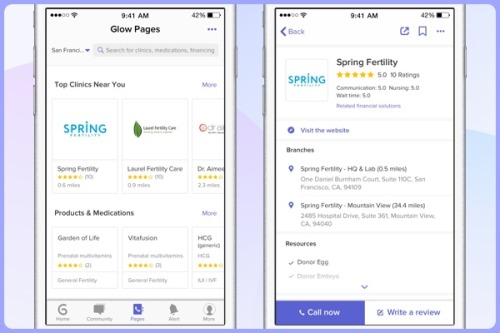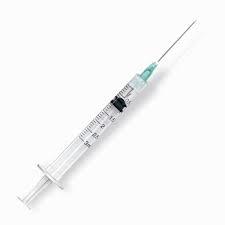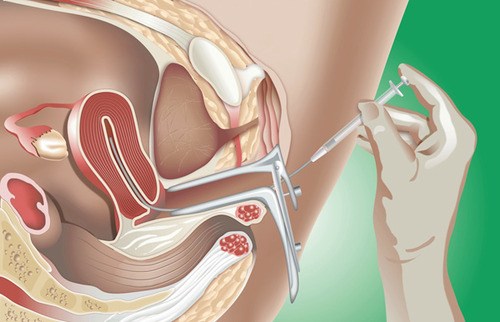Have you heard? Glow is Revolutionizing Access to Fertility Treatments
We’ve helped over 500,000 women get pregnant, and are now ready to help millions more.
We’ve helped over 500,000 women get pregnant, and are now ready to help millions more.
Why ask one friend about her experience with fertility when you can hear from millions?
Our newest feature Glow Pages collects the experiences of millions into one searchable directory. Glow Pages provides crowdsourced reviews of fertility clinics and products, searchable both online and in the Glow app.

Consider it the next step in our mission to empower you and your health :)
Men are cute. And often, they’re great.
But let’s face it—males are probably not the best source of info on your fertility. Heck, many of us women don’t know all the ins and outs of our fertility, either!
We have compiled some highly scientific proof:
Glow knows. And that doesn’t make your man any less fine! In fact, with Glow, you’ll both be prepared for smart sex: the best kind ;)
By Dr. Mike Eisenberg

You may wonder why a male infertility specialist is talking about Glow. Glow is a woman’s health app. My job is to support men who are trying to conceive. On the surface, my involvement doesn’t make much sense.
I’ll give you two reasons. First, I know that fertility is a team sport—and that Glow recognizes this. Second, I believe in the power of data.
Let’s start with the first point. There is a myth that infertility is uncommon, and that it is only a female problem. In fact, neither is the case. Approximately one of every seven couples encounters infertility issues as they look to conceive. And the reality is that up to 50% of infertility cases are due to a male factor. In spite of this, a quarter of couples do not seek a male evaluation when they begin to seek infertility care. The partner connected function on the Glow app acknowledges that fertility is a team sport; in addressing both sides of the infertility equation, Glow increases the odds of each couple’s eventual fertility.
I also believe that data is powerful—especially when applied to understudied disciplines like reproductive health. There is currently limited data around male causes of infertility, and building a comprehensive data set is the clear next step in advancing male infertility causes and identifying better treatments.
Having more data around men’s reproductive health would allow for so much exploration and discovery. For a long time my peers in my field have speculated that medical problems or the medications used to treat them may play a role in male fertility. Data can help us identify which medications might be affecting reproduction. I occasionally see overweight patients who have a rather sedentary lifestyle. And though many believe there is a relationship between physical activity and infertility, this relationship is far from understood. Data would help clarify. Equally important, I suspect that certain everyday behaviors contribute to a man’s infertility; something as simple as the pocket where a man tucks his cell phone could have an effect. We’re just not sure; but more data could help guide recommendations. Crowdsourcing data, both from couples who struggle with infertility and from those who don’t, will better enable us to unlock the many variables affecting women and men who hope to conceive.
Glow has helped many women get pregnant already. We expect that with the app’s support of men, even more couples will have success. And as these couples make strides in their personal journeys to conception, their data is helping to advance scientific and medical research. This is certainly something that I am proud to get on board with.
Dr. Mike Eisenberg is Director of Male Reproductive Medicine and Surgery at Stanford University Medical Center. He also serves as Assistant Professor of Urology and Obstetrics & Gynecology at Stanford.
Did you know that 1 out of every 3 couples who seek fertility treatments drop out before they ever finish their cycle?
This may not be all that surprising to anyone who has gone through an IVF cycle. They can be extremely stressful, overwhelming, and at times, incredibly confusing.
Glow is determined to change all of that.
The new “Fertility Treatment” status

Whether you’re embarking on IUI, IVF, or simply an enhanced cycle with fertility medication, you’ll now be able to easily track your medications, appointments and all other special procedures in Glow.
The latest in Reproductive Research

Additionally, Glow will provide personal insights, tips, and best practices for your treatment.
It’s personal
Members of the Glow team have also struggled with infertility and understand the challenges firsthand. Our hope is that with those guiding experiences and the help of infertility specialists, we have created a user experience that is as useful as it is intuitive.
Infertility can be a dark and scary journey, and no one should have to go through it alone. Now, you won’t have to because Glow will be there to help you every step of the way.
And we are just getting started. We would love to hear what you think so please send your feedback to support@glowing.com.
Your friends at Glow
Visit NBCNews.com for breaking news, world news, and news about the economy
Glow was featured on the Today Show this morning!
If you care about women’s health, your health, you must check out Glow!
Out of thousands of health apps out there - Glow was just chosen as the very BEST health and fitness app by the International Academy of Digital Arts & Sciences, which includes experts such as media mogul Arianna Huffington, Founder of Tumblr David Karp and Internet co-creator Vint Cerf.

It’s a pretty incredible honor - and it speaks volumes about the things we together have accomplished in the last 9 months since Glow first launched.
Not to sound too cliché - but we owe it all to YOU - our users, the Glow community.
It’s your suggestions, your insights, your genuine love and appreciation for this little app that keeps us motivated and driven.
It’s pages and pages of success stories that you share, that allow us to burn the midnight oil, night after night - improving and innovating.
It’s the voices from around the world, from India, England, Canada, Australia and from all 50 States, that show us the power, the resilience of women.
So thank you all again!
And if you have not shared Glow with your friends, with your sisters, with every woman you know - then now is the time.
Tell them it is the only health & fitness app that has ever won a Webby.
Tell them that together we are going to revolutionize women’s health care - the whole world over.
Tell them to download Glow. (www.glowing.com)

You’re not alone.
You’ve been trying to conceive for a while. And nothing is happening. So you head to a fertility specialist who runs a battery of tests and then not finding anything concrete suggests casually: why don’t we try an IUI cycle?
Your heart goes: Dum. Dum. Dum.
IUI. Intrauterine insemination. What does it mean? What does it entail?
Fret not. We are going to explain while keeping the medical terms to a minimum.
So as far as fertility treatments go, on a scale where sex is sex and IVF is a root canal, IUI is like a thorough teeth cleaning by a slightly sadistic doctor. That is to say, it sucks, but it’s highly survivable.
The Drugs
An IUI cycle is not something you can initiate immediately. It takes time and planning. An IUI cycle starts with your new period. Your doctor determines the regiments of drugs you will be taking. For some women, there are no drugs. For them, it is just about timing. For others, they may take varying doses of Clomid or stronger medication to help them ovulate or to delay ovulation until their eggs are the perfect size. Some women do shots. The shots come in two varieties:


Almost every type of fertility medication comes with a list of doozy side-effects. But the one that is almost universally guaranteed is that you will turn into a crazy person. It’s best if during this time you surround yourself with people who will love you no matter what you say or do. I personally found the ‘no matter what’ part especially important.
The Monitoring
Every IUI cycle also comes with varying degrees of monitoring. Let’s label them after holidays to indicate the level of commitment needed.
The Big Day!
You made it. Your eggs (one or two of them) are the perfect size. Whether with the help of medication, or not, you will ovulate sometime very soon. You head to the doctor’s office and either your partner or your donor provides sperm. The sperm gets washed. Cleaned. And then using a thin tube, the doctor will place the sperm directly into your uterus via the cervix. This process is uncomfortable but rarely hurts. You may experience some cramping and some spotting. You lay there for a little while. Get dressed, go home, and start obsessively monitoring your body for any symptoms of pregnancy. Within 14 days you will have your results.

Hope that makes things a little clearer!
“Just take some Advil.” He says, barely glancing up from the notepad where he has been diligently taking notes for the past ten minutes. (I’m starting to wonder whether he is completing a crossword puzzle instead of listening to me.)
“No, really….” My 17 year-old-self answers. “They really hurt. Like I never get a period, but when I do, I am in the fetal position for, like, a day or two.”
“Yeah – It’s normal. Your body is just sorting itself out. Just take a few painkillers, every four hours. Anything else?”
I can’t think of anything else. I shrug and start getting my things, but my eyes are brimming with tears. I feel so frustrated. There has to be more to this story.
There was. There is. Close to ten years after that day, I was diagnosed with Endometriosis through a laparoscopy.
What is Endometriosis?
Endometriosis is the abnormal growth of cells similar to those that form the inside or lining the tissue of the uterus, but in a location outside of the uterus. The cause of endometriosis is unknown. But it is said to affect as much as 7% of all women in their reproductive years. And it is one of the leading causes of infertility (as I found out much to my chagrin.)

Symptoms of Endometriosis
The symptoms of endometriosis are varied. But they include:
• Cramps
• Painful menstruation
• Irregular vaginal or uterine bleeding
• Irregular vaginal clotting
• Large, painful ovarian cysts called “chocolate cysts”
• Infertility, miscarriage, ectopic pregnancy
• Pain during sex
• Nausea/vomiting, gastrointestinal cramping, diarrhea/constipation, particularly during your period
One of the many outstanding features of Glow is that it actually responds to the different symptoms that you input daily to give you insights as to whether you may need to have a conversation with your doctor about endometriosis.
Treatment of Endometriosis
There are many different types of treatment for endometriosis. Please visit the site of Glows’ medical advisor, Dr. Seckin and his foundation, Endometriosis Foundation of America for more information.
But here are the key takeaways: Killer cramps are NOT normal. And Advil is NOT the answer.